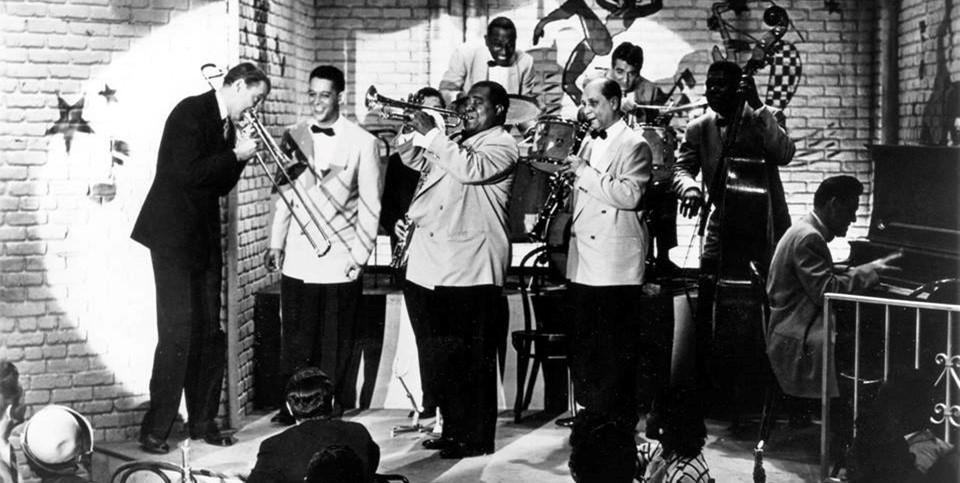G | 1 h 56 min | Drama, Musical | 1954
The brass section is key to a big swing band. But guess which of those instruments is hardest to master? The trombone! Valves on other instruments (trumpet, saxophone, tuba, clarinet, flute, bassoon) allow musicians to use smaller muscles in their fingers, enabling finer control of note and pitch. The trombone’s slide, however, forces them to use more unwieldy muscles in shoulders, arms, wrists and elbows, making it tougher to control note and pitch.





